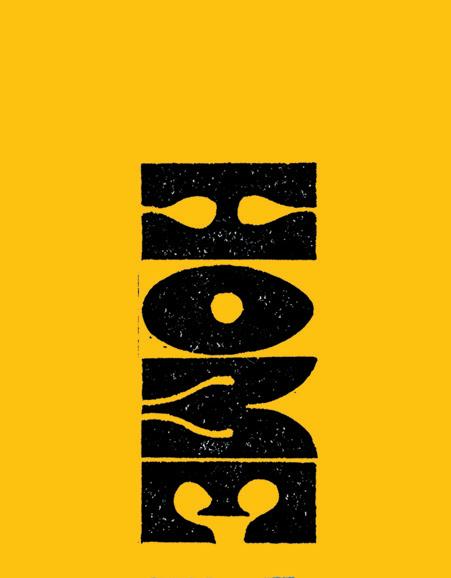
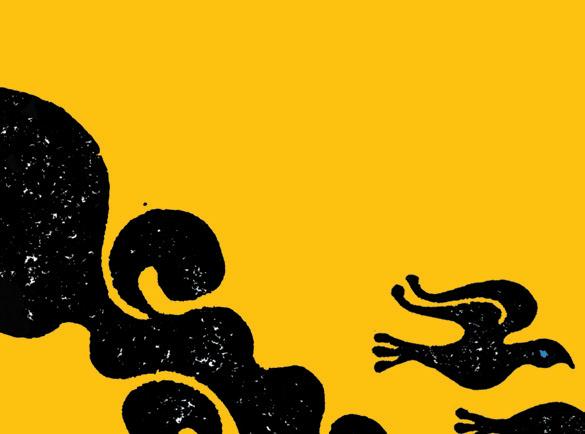
‘Crossman writes with such curiosity and heartbreaking honesty of what it is to find her own truth. I was enthralled by this book’
Lily Dunn,
author of Sins of My Father
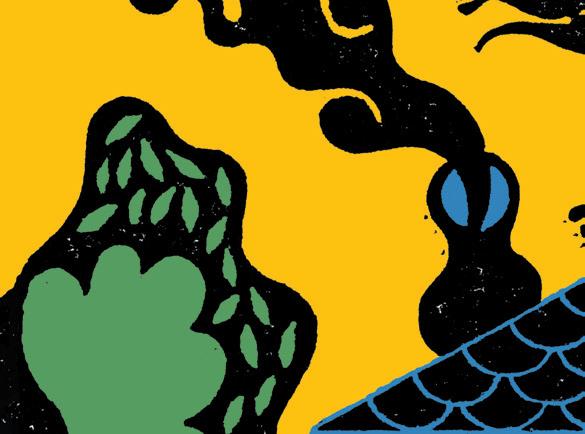
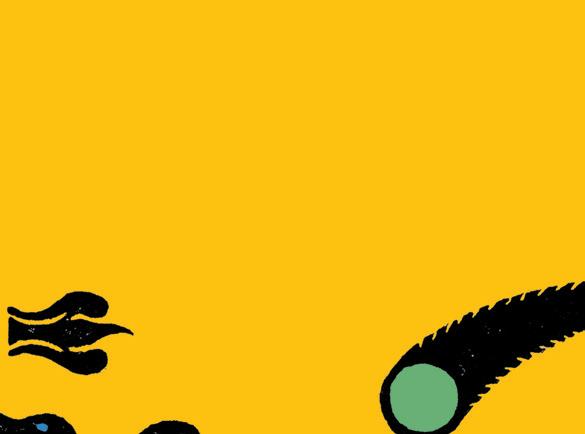
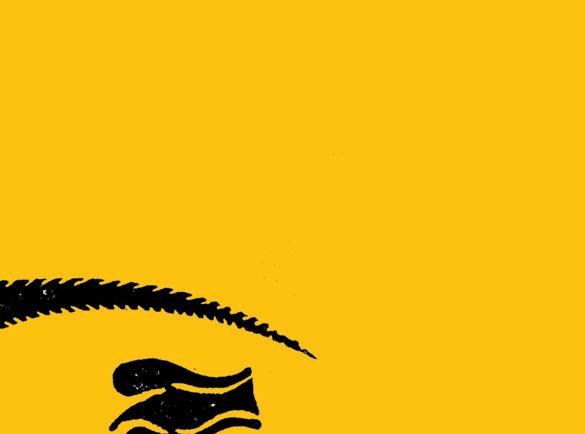

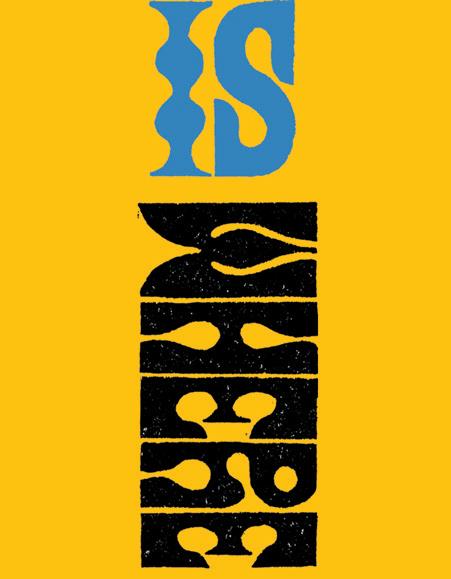
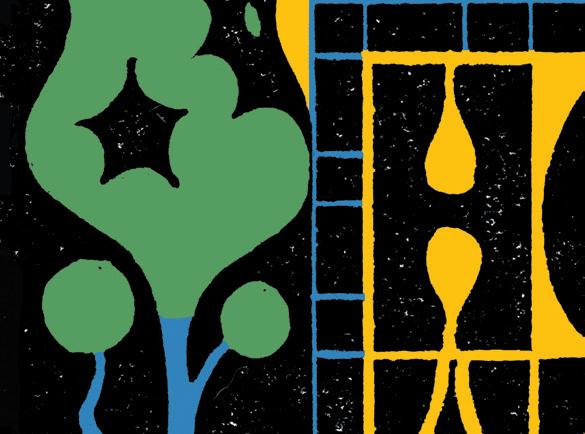
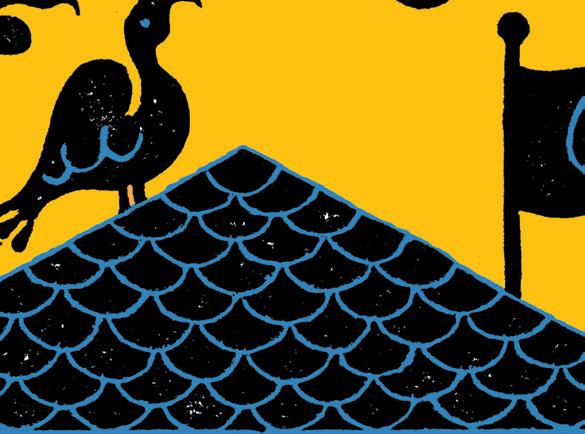
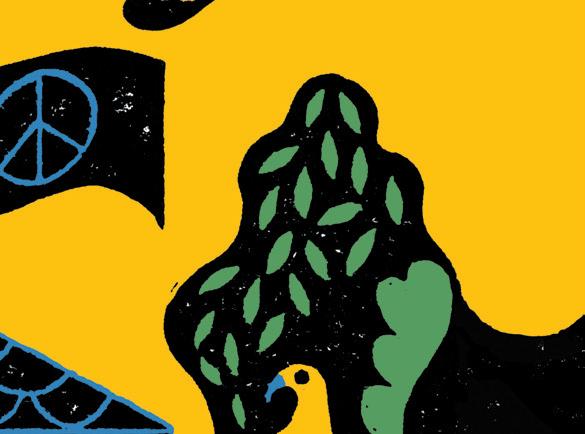

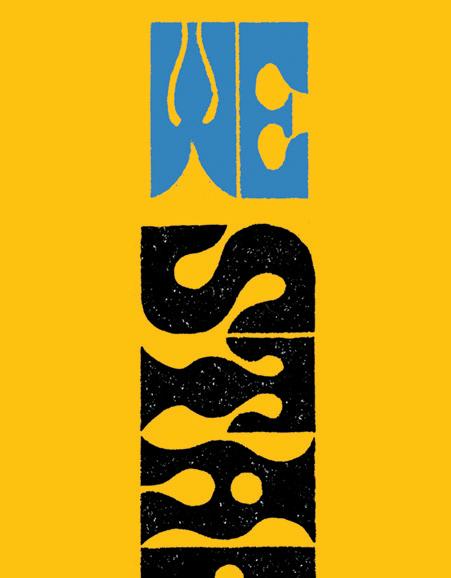
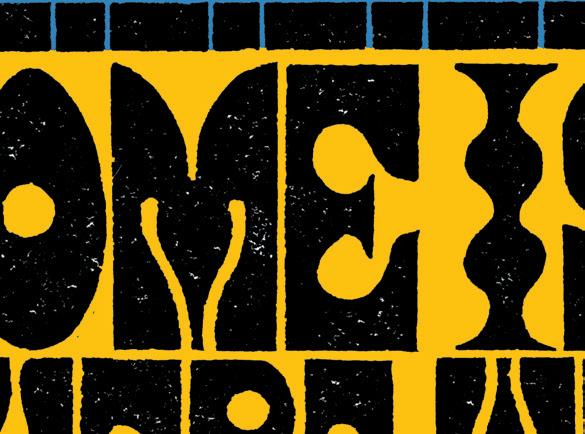
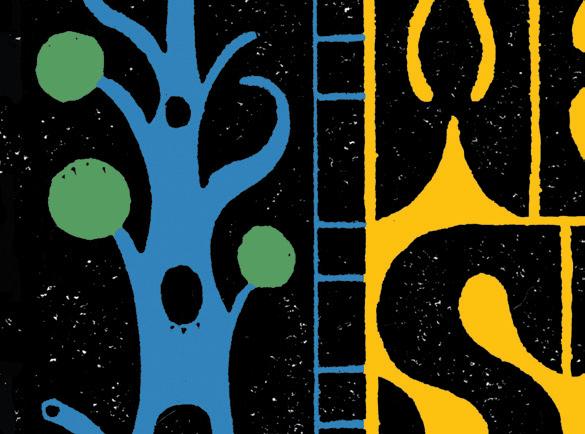
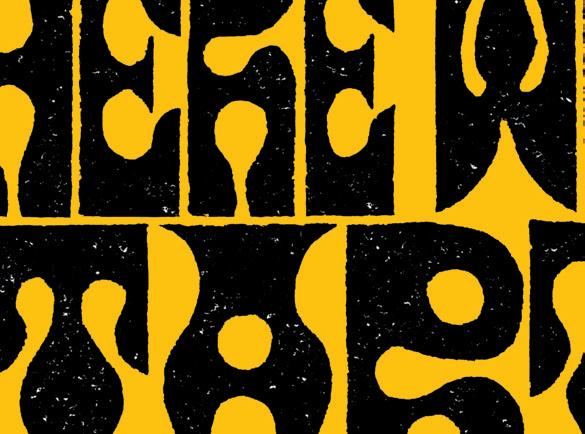
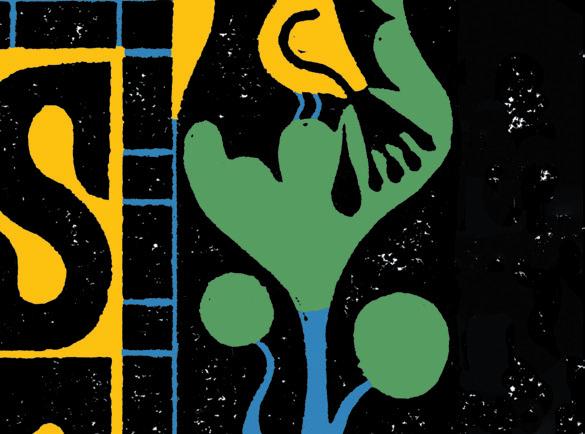
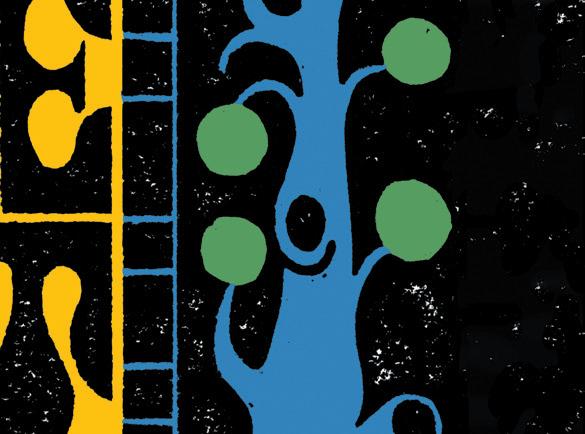


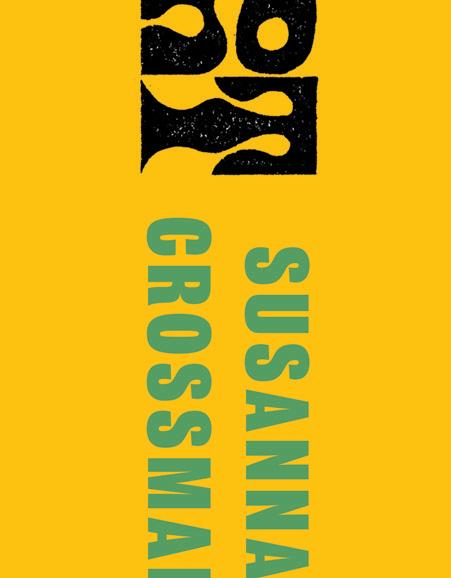

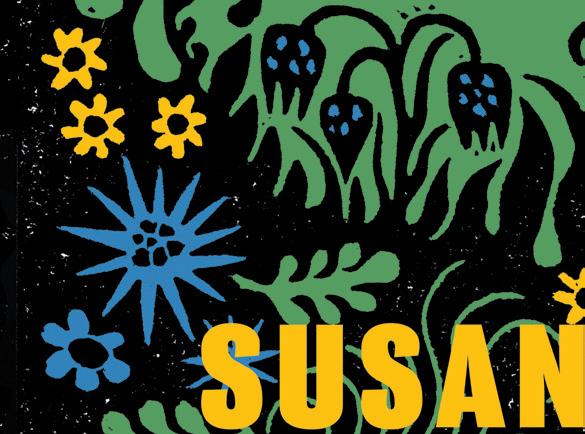
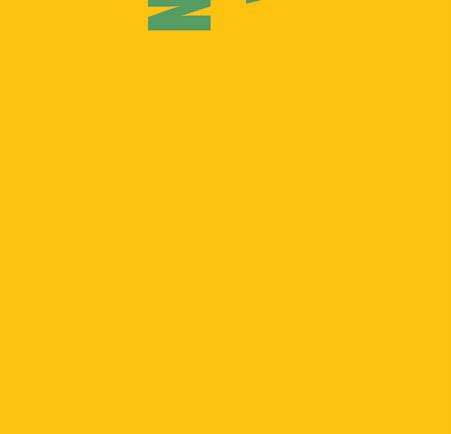
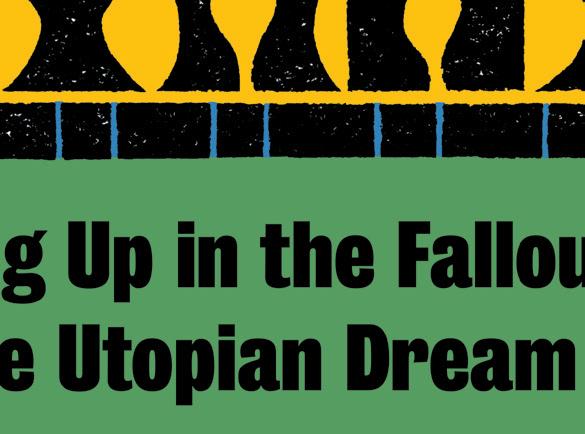
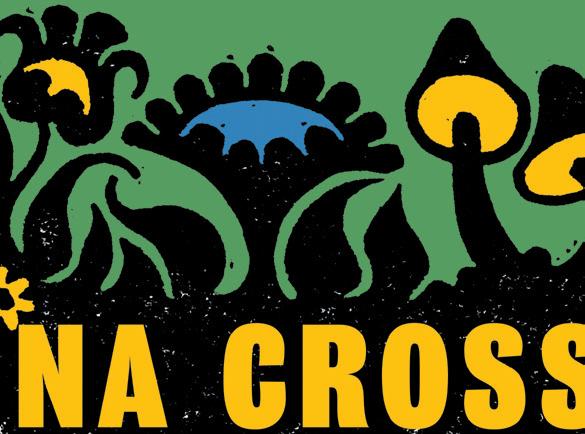
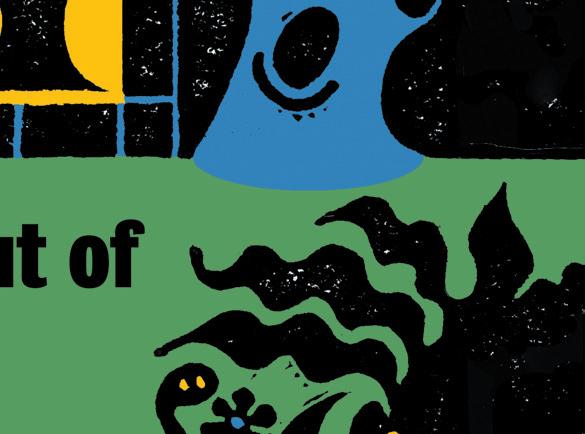
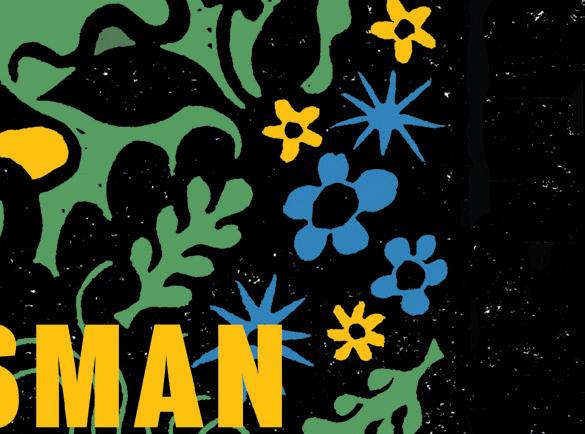
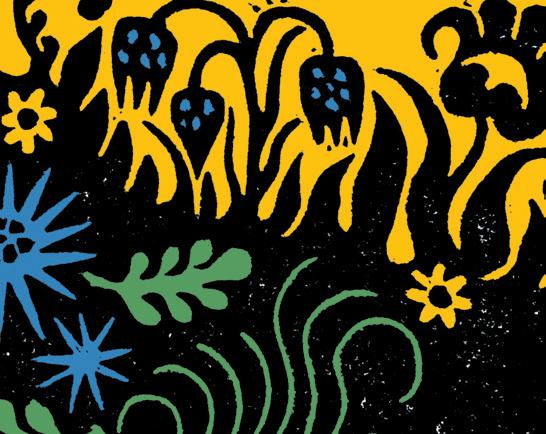
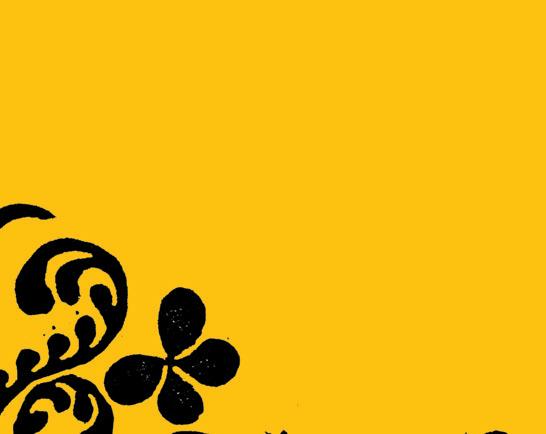




‘Crossman writes with such curiosity and heartbreaking honesty of what it is to find her own truth. I was enthralled by this book’
Lily Dunn,
author of Sins of My Father




























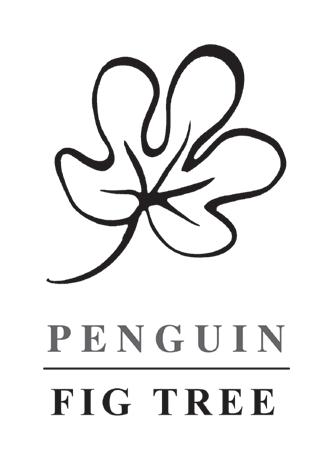
FIG TREE an imprint of
UK | USA | Canada | Ireland | Australia India | New Zealand | South Africa
Fig Tree is part of the Penguin Random House group of companies whose addresses can be found at global.penguinrandomhouse.com.
First published 2024 001
Copyright © Susanna Crossman, 2024
The moral right of the author has been asserted
Set in 13.5/16pt Garamond MT Std Typeset by Jouve (UK ), Milton Keynes Printed and bound in Great Britain by Clays Ltd, Elcograf S.p.A.
The authorized representative in the EEA is Penguin Random House Ireland, Morrison Chambers, 32 Nassau Street, Dublin d 0 2 yh 68
A CIP catalogue record for this book is available from the British Library isbn : 978–0–241–65090–5
www.greenpenguin.co.uk
Penguin Random Hous e is committed to a sustainable future for our business , our readers and our planet. is book is made from Forest Stewardship Council® certified paper
‘Home is where one starts from . . . In my end is my beginning.’
T. S. Eliot, Four Quartets
‘There is no place like home.’
Dorothy Gale, The Wizard of Oz
‘If you want to keep a secret, you must also hide it from yourself.’
George Orwell, 1984
At the community, if all my days are rolled into one, they start here: Alison is back from milking the cows, the early morning shift. She opens my bedroom door. ‘Time to get up.’ I slip from under warm covers into sharp air, and a chill hits my face, feet, legs, chest and arms. It’s always cold in the house. I run to my sink and stick my head in freezing water. My sink is always kept full of water, and no one ever pulls out the plug. This sink-water thing is something I invented. It is hard to endure and sometimes almost impossible, but for my system to work my head must be underwater. Eyes tightly shut. It is a homemade alarm. Gripping the sink and holding my breath, I slowly count: One. Two. Three. Four. Five. Six. Seven. Eight. Nine. Ten. Gasping, I lift my head. Face dripping, I check the vine. It has sneaked in through the top of my sash window. Green stalks and leaves are sprouting inside. A plant is growing in my bedroom, and I tell no one, just like no one knows about my alarm. The vine sketches a green pattern on my ceiling, the motif of a secret life.
In the corridor, my big sister Claire pushes me. She’s always pushing. In the distance, I hear Alison waking my brother, and then humming the song ‘We Shall Not Be Moved’. This song is from marches against nuclear bombs. The words mean we protest, and Alison is often singing and protesting because the fabric of society is falling apart, but as it crumbles we rise into a shining light. She’s our mum, even though you can’t say ‘mum’ in the community. I yank open our Unit door.
On the wooden staircase, by a banister curve, I meet Brandy. ‘Hi,’ she says. ‘Hi,’ I reply. We walk down thirty monumental steps. Handrails parallel the pitch of the flight. The banisters are long and dangerous. Liquorice brown. Smooth and warm. It is so high, we are banned from sliding down. You could kill yourself. But we slide.
I am nearly nine, and recently Charles and Diana got married at St Paul’s Cathedral. More than 750 million people watched the wedding on TV. It was in the papers, and we are against it, but we watched it anyway. Diana’s dress was a frothy white river of fabric, and her doe-like eyes peeped from beneath her veil. It was beautiful, but I know marriage is a patriarchal institution, a capitalist trap, a snare. You can read about it in Spare Rib, or if you ask community members, someone will tell you marriage is legalized rape. It is a construction, and that means it’s not natural, and is part of the social reproduction of gender roles and women’s unpaid domestic labour.
This is theory, and it means different things when it is given to an Adult or to a Kid. But I’ve been living in the community for a couple of years. The norms have become
normal, and because I am an individual, I can speak the truth and express myself.
‘Saskia’s going to make ground muesli.’ Brandy twitches her freckled nose. Her blond bunches bounce, and I see they are unbalanced. One is higher than the other, but I don’t tell her, because sometimes Brandy kicks. Then we fight, and usually she wins. ‘Ace idea,’ I say. The Kids always make their own breakfasts. Knives heavy against our growing hands, we grip handles, saw bread, smear margarine, scoop lumps of oily peanut butter from white plastic catering-size vats. From the fridge, we grab large brown plastic jugs. Inside, the raw milk from our cows is topped with heavy cream. Precariously, we tip milk into brown glass mugs, trying to avoid the inch of yellow. If the cream gets in the cup, it is sludge inside your mouth. Paste coats your tongue.
Downstairs in the Kitchen, Brandy says, ‘I’ll go and get the muesli.’ She slips into the unlit storeroom, where the Adults go, among the stockpiles of coal-black currants, apricots, sacks of chickpeas, rice, lentils, sunflower seeds, and cardboard boxes filled with wrinkled prunes, dark as midnight. Our diet is organic before the word exists and food is ordered in bulk from health food co-ops. We eat vegetables from our garden. We are self-sufficient and it is good for the planet. Meat, dairy and eggs come from our smallholding. Along a corridor, there is an industrial cold room. It closes with a clunk and refrigerates wheels of black-wax-coated cheddar cheese. ‘Here we are,’ Brandy says, moments later. In her hands is a large bowl filled with oats, currants and hazelnuts. It is scented like sawdust and something sweet.
Saskia waits by the coffee grinder. ‘Hurry up. Give me the bowl, Brandy. Let’s do it.’ Saskia is our boss for now, though Jason comes in at a close second alongside Michael, and Troy is a candidate when he’s around. Troy is Sunshine’s big brother, and Sunshine is my friend. We are the Kids, and we have leaders even though we are all equal.
Saskia tips the heap of muesli into the grinder, and flips the switch: ‘Yes!’ The coffee grinder turns, and we whizz into the roles the Adults give us. Alone, we must cut, chop, slice, cook, wash and boil. Diving deep into the making of life, we are undoing the notion of childhood because they say it was invented like the nuclear family. A small blade rotates fast as light, crushing and pulverizing everything into dust. Tina puts her hands over her ears. Saskia laughs.
‘You are skill,’ Claire tells Saskia.
‘Here you go.’ Saskia hands Claire the first bowl. As the machine is small, we must wait for our powder: Troy, Michael, Jason, Sunshine, Brandy, Jake, Rainbow, Tina and me. When it is ready, I smother mine with milk. It is a miracle recipe, invented by a Kid. Standing by the coffee grinder, I cram it in my mouth, surrounded by the others. One to ten and back again.
Our gang has changed. Little Harry has gone; his mummy had bulging eyes, and talked too loudly. Often, she cried, and once she pulled me into a corner, weeping and whispering, ‘They are all plotting to get me.’ The Adults said, ‘She has to go.’ Nobody mentioned the words ‘mental illness’ or ‘crazy’, but she is one of the only members who will ever be asked to leave. Though she didn’t hurt anyone, it was best for everyone. John (the Australian)
and Dee (the Ghanaian) have taken their three children, Andrew, Merrilyn and Clementine, to live in the Australian outback. Apparently, David says, ‘The two girls are going fucking wild!’ David the Adult and ex-heroin addict is my best friend, but I am careful who I tell about this now. Community rules are different to those outside, and playground bullying singed my skin last year. But David still says he will marry me. The twins, Charlotte and Sarah, have moved down to Devon to live with their dad. They left after the girls found a razor in the communal bathroom. They tried to shave their little faces, and cut their skin into ribbons of red.
Over my fifteen years in the house, dozens of Adults and Kids will live in the community. People appear and stay for a few days, eighteen months, or years. When they arrive, we are joined at the hip, fused like metals, welded into bonds: we eat, sleep and live collectively. The house becomes their home, and in the woods, inside their Units, or outside on the front lawn, where crocuses are planted in a ‘Ban the Bomb’ peace sign, they learn our language and ‘way of life’. New members talk about rejecting ‘the mainstream’ and ‘disrupting conditioning’. They are libertarians, and that means they think children are fundamentally good and, if left to their own devices, will bloom. The Adults cuddle us, shout at us, cook us food and hold our hands. Then, one day, there is a random crack. A snap. People leave. There is a constant fracturing, and they say, ‘We are like family,’ and then vanish in a puff of smoke. It is a magician’s trick gone wrong, for nothing else appears, and once
people leave, I rarely see them again. Men, women and children flitter through our lives.
Brandy’s stepdad, Thomas, enters the Kitchen. A roll-up dangling from the side of his mouth, blond curly hair standing on end, dirty jeans and an orange shirt, the sleeves rolled up to his elbows. ‘Bloody hurry up. It is time to go to school.’ We chuck our dirty bowls into a sink and run outside, ragged and undone. I am wearing Sunshine’s new purple coat. Her grandma sent it through the post. Mine is lost, and Sunshine is homeschooled and doesn’t need it today. We often share clothes, and I zip her coat to my chin.
Outside, our van is parked at the top of a slope, balanced on gravel. We crowd behind it. We do this every morning: push the van down the hill to start the motor. In the winter, our small fingers stick to the freezing metal. You must be careful; you can leave skin behind. In the summer, the metal is boiling hot. Our VW van is always broken. It is a communal vehicle. We use this word, ‘vehicle’, and we don’t say ‘car’. The community has another vehicle, a black London taxicab, but we don’t all fit inside. Kids have to crouch on the floor. One day, Violet, Michael and Saskia’s mum, drives me to Glastonbury Festival in the cab. Violet is an artist, and on the journey she tells me about the pictures she paints of purple vaginas, dinner parties, and a woman called Judy Chicago. At Glastonbury, people take photos and think we are a band. But when you travel in the black cab you must avoid the folding seats, because if you sit there, you are back to front, and will get carsick and puke. Everyone shares the two communal vehicles, and Thomas, Bill, David and
Lawrence spend hours repairing them. Hands black with grease, they crouch in the garage pit and swear. They maintain the van. But, often, we’re late for school, and occasionally we have to walk.
‘Don’t shove me.’ Brandy is trying to get near to the middle; she pushes her little sister Tina out of the way. The side is bad; it is more difficult to push, and you can fall in the gravel. Violet comes to help. ‘Get a move on, kids.’ Violet’s black hair is stuck to her forehead; the strands line up, counting the morning minutes. She’s wearing a long floating dress and wellington boots. We place our hands on the van. Thomas shouts, ‘One, two, three, go,’ and turns the ignition on. Our arms are outstretched, and we run forward, working as a crew. I pray to Lardy: Make the van start. Make the van start. Lardy is a god I invented, mixing ‘Lord’ and ‘Lady’ so I’m not being sexist. Even if religion is wrong – because, Tripti says, ‘Marx believes it is the opium of the people’ – I still pray. The van goes down the slope, and the Volkswagen chugs, the engine rumbling like a distant storm. Praise Lardy! Thomas brakes and Violet dashes forward, almost trips over her dress and yanks the side door open. We race to get inside.
‘Get a fucking move on,’ Thomas shouts. We must go before the engine dies, before the van breaks down again and the rage and swearing start. When the Adults swear and shout I can feel myself shrinking, and then I am outside of everything, and it is like I am watching and maybe I am not there. In the back of the van, I am quiet. Thomas is German, and speaks in sentences, straight and clunky like railway lines. He knows about agriculture, and he frightens me.
The road to school goes past hamlets and farms. We
should go to the local town school, but the Adults don’t agree with the ethos. ‘Ethos’ is another communal word, and it describes what you believe in, and something called ‘social behaviour’.
As we drive round a bend, Tina bumps into Saskia. Saskia elbows Tina, ‘You’re a div.’ Tina answers, ‘I am not.’ Saskia elbows Tina again, and this time she hits Tina’s stomach, and Tina starts to wail. Saskia gives her the finger. ‘Swivel on it.’ Saskia is nearly twelve and she is ‘wicked’, meaning great. She has crimped hair, and says she is a punk. Last month, in London, she bought ‘gear’ from Kensington Market – zipped black trousers and red Doc Martens boots. Afterwards, Saskia says, she went to an Edwardian theatre, now a punk disco, saw George Michael and Paula Yates, and drank vodka. Saskia has been hanging out with Derek, who is very old, and she is learning his punk style.
Recently, Derek had a party at the community. Hundreds of punks invaded the house and climbed the stone steps, in a trash fire carnival of beauty. They strode through the double doors, made-up and cut-out. It wasn’t planned but they gatecrashed, and they were like aristocrats in ties and plastic, some dressed in school uniforms. In the Lounge, Sunshine and I watched them lift their heads and look through the stained-glass windows. We saw the angles of their chins and I thought they were beautiful. They carried the spirit of Judy Nylon, because Judy says punks are rocks too big for the frame, and Derek says this means breaking the rules. One of the Adults called them ‘fucking bastards’.
The party caused a scandal. At the Friday Meeting, Thomas stroked his blond beard and said, ‘They don’t take things seriously, these punks. They are not political, not suitable for the house.’ Someone added, ‘It must never happen again.’ A woman snorted, ‘Did you see that dreadful make-up!’ We don’t approve of make-up at the community, because bodies must be bare, like boy bodies, like machines. The punks did not fit in with the ethos.
In the van, Tina starts to complain. ‘Thomas, Saskia says I’m divvy, and she hit me and hurt me, and –’ Saskia glares and Tina stops speaking. Eyes fixed on the road, Thomas replies, using the words the Adults always say: ‘Deal with it yourself. Sort it out, Tina.’ In the community, autonomy is better than dependency. It is not good to ask for help, even if you’re five. Tina sniffles and holds a quivering finger up to Saskia. ‘Swivel round it,’ she whispers. We all laugh because we have escaped the square box of family life. Now, we are curved, zigzags, doodles on a piece of paper. Yet the direction we are going in is not clear.
Ten minutes later, the van drops us off at the village green, a circle of lawn. In the late spring, nasturtiums fill flowerbeds. Orange. Yellow. Black and red. We fall from the van, skip and jump towards the church, and the graveyard we must cross to reach our school. The Kid group separates. We enter the outside world.
Nearly four decades later, I am with my half- brother, Alex, in New York. I am here for a fortnight, teaching classes on clinical art therapy, bodies, and mental health. On campus, I talk about non-verbal communication, touch, and
proxemics. ‘Where you come from, and your life experience,’ I tell the students, ‘influences how you move your body, whether you speak quietly or loudly. Culture impacts how close we stand next to other people. If you were born in India, a New York suburb or in Nigeria, you will not sensorially perceive the world the same way – the questions of intimacy and separation. Our cultural upbringing shapes us; not only our values, but our senses and our bodies. Part of how we become who we are begins the day we are born.’ Students ask questions and take notes.
Alex and I are chatting about my lectures, and about families and home, and I am describing our new granite house in France. We’ve just moved in with our three daughters, roses bloom in the walled garden, and in late June ox-eye daisies grow high. He’s telling me of his excitement about getting his first apartment. Alex is much younger than me. The subject of the community is brought up.
‘Where was it? What was it called? How many people lived there?’ he says. Normally I am good at changing the subject when people enquire about the community. But Alex has never asked me this before, and as he has just set up home himself, his questions are timely. On his sofa, I am abruptly lost for words. For years, I visited my dad and his second wife’s children in their middle-class home. During these monthly visits, I read bedtime stories to Alex and his brothers and sisters, distributed biscuits and crisps to their friends. Later, I picked them up from teenage discos. Our homes were separated by a couple of hours in a car. Yet, I realize, my siblings never came to the community. Why did no one bring them? Why was our experiment
closed? Thoughts arrive in my mind, one after the other, forming a toppling stack.
Alex doesn’t know this, but from when I was six years old, journalists would frame the same questions he’s just asked, always aiming for something like: ‘Do you love or hate your home?’ Now, the answers are more complicated. For as I have grown older, I have realized that, unlike other people I’ve met, my stay in the community was not simply a short adventure, followed by a period of life with parents in a normal home. The community was the only childhood I knew. Do I begin with the larger or the smaller picture? Do I tell him how we got there, or why we stayed? Explain what life was like in the seventies for divorced women? Detail the Cold War, and our parents’ generation’s fantasy about socialism, the Iron Curtain and what was on the other side? Should I tell him about the Thatcher era, riots, and the burn for change?
These questions and their complicated answers seem even more relevant in our dystopian age, as our world feels trapped in ecological and social despair, and people seek out new solutions, a better society.
Yet what if he asks me how it shaped me – this ideal home? Everyone wants the ‘exclusive’ on paradise. For utopias are a form of heaven. As German philosopher Ernst Bloch wrote, ‘Utopian unconditionality comes from the Bible and the idea of the kingdom, and the latter remained the apse of every New Moral World.’ Can I describe the glorious buzz of revolution, alongside the isolation, the trauma, the shame? What happens to children when we try to abolish the family and replace it with an
institution? And can I explain that we should be able to criticize the damage caused by revolutions while retaining a belief in the power of change?
I picture the community inside a glass snow globe. This tiny world fits in the palm of my hand, every faraway detail is magnified, the horror and beauty enclosed in curves. Usually, I keep this snow globe and my childhood hidden. But as we talk I realize this miniature world can be seen with fresh eyes. I think of a colleague of mine, who studies archaeology and emails me photographs of ancient Italian statues from Pompeii. He writes, ‘It can take a lifetime of painstaking research to assess the meanings of a single vase. Solitary pieces transform our vision of history. It is not about the object but unearthing the habits and beliefs of the past.’
Later that evening, I wonder if I can become an archaeologist, and scientifically measure the community’s dimensions, examine the world from which it came. An objective just-out-of-reachness might help me fathom this place. I think of Erving Goffman and Michel Foucault, and their work analysing power in insular social establishments – prisons, psychiatric hospitals, and religious retreats, estranged from the outside world. Goffman’s interest stemmed from their nature as ‘forcing houses for changing persons: each is a natural experiment on what can be done to the self’. As I fall asleep, I think about what it means to be the mismatched fabrication of someone’s dream. If, as pioneering psychiatrist Donald Winnicott believed, home is where we begin, what is a home, and how did mine start?
‘Life without utopia is suffocating, for the multitude at least: threatened otherwise with petrifaction, the world must have a new madness.’
Emil Cioran,
History and Utopia
‘For our house is our corner of the world. As has often been said, it is our first universe, a real cosmos in every sense of the word.’
Gaston Bachelard,
The Poetics of Space
A lot of what happens starts with words and numbers. It is July and we have packed up our house. We are what is called a Single Parent Family and we live at No. 5, by the park. It is 1978, being a Single Parent Family is not good, and we are the only children like this in our classes at school. When No. 5 was bought, there were five of us: three girls, Mum, and Dad. Then, our sister died and there were four of us left. Two sisters and two parents. Then my brother came, and we were five again. Then Dad left, and we returned to the number four. These are the sums of our family, the adding-on and the taking-away.
We are leaving this house because, in the past year, Mum has been going to meetings in Liverpool, London and
Manchester. At these meetings, the three of us play in corridors with kids from other Single Parent Families. Often, we wait for days and years, while Mum and the adults talk about ‘class oppression’ and ‘marriage being a sacrifice’. We are told to be quiet when a woman cries, because divorce is a disaster when ‘women aren’t allowed bank accounts, just because they have vaginas!’ Mum tells stories of dancing on double-decker buses, and other people shout ‘Women’s Lib!’ Everyone has long hair and they cheer about the strikes by undertakers, firemen and bakers. At these meetings, the adults argue about: ‘sexist language’, ‘the New Left’, ‘imperialism’, and ‘progressive education and the disruption of sexual repression’. One time, a big boy grabs my wrist and twists the skin in two directions. ‘This is a Chinese burn. You have to scream when it hurts.’ Now and then, we are given sandwiches or lukewarm soup, and ask Mum where we can go to wee.
In the meetings, a man called Alfredo stands tall. He is the leader, and they discuss communes, communities and communism. These words begin with the letter C. This letter is curved like the moon. If you turn it on its back, it can swing like a cradle, but if you push a cradle too hard it will topple and fall. Alfredo talks about budgets, capital and properties. One day, they decide members will contribute, ‘and we’ll buy the mansion together and make our commune!’ – and everyone roars with joy. Sometimes, I long for our home, our quiet street, for Dad who has left us, for my books and my bed.
Today, it is time to go. Piles of boxes sit by a borrowed car. We’re leaving No. 5, our climbing frame and our garden
behind, and we’re going to live in the mansion. No. 5 was our home, a four-bedroomed house. We had guinea pigs in a cage named Victoria and Albert. The back fence was the end of our universe, a dotted line to cut around with a sharp pair of scissors. As we drive away, No. 5 gets smaller and smaller. We slide on the sweaty back seat of the car for hours.
‘We’re here,’ Mum says later, when we arrive. Wheels rattle over what she calls a ‘cattle grid’. The tyres on the metal bars make a clunk, clunk, clunk. She turns to face us, and we shout, ‘Hooray!’ Slowly, we head down a snaking drive, and the car twists on tarmac curls. Fields stretch out either side of us, and barbed wire encloses cows. At the bottom of the drive, Mum pulls open the car doors, and we fly outside, landing on a gravelled courtyard. A giant house rises up like a fairy castle, so big we cannot see where it begins or ends.
We are broken husks sticky from the car, from the packed-up life we left behind. Yesterday is trickling away like sand. We do not see it going but it disappears. Here is the dream Mum has talked about for months, in the meetings and on the telephone – ‘The commune . . . no, I mean the community’ – and we scramble up stone steps and land at a door. She grabs a camera. ‘Let’s take a photo. It is the beginning of a new world.’
We are ordered by age and size: my sister, me and our brother grip a cast-iron balustrade. In the camera frame, we blur, sharpen and are blurred again: a trio of kid monkeys with flares and wonky fringes. We dangle in untethered hope. Claire pinches my leg, I moan, our brother laughs.
We yank open the double entrance doors and step over the threshold. Arrival is the point when the boat reaches the shore. The figurehead of our family is meeting the land. At this moment, on the roof, ancient Furies and Fates lay bets. They are mumbling from on high, hissing prophecies and spinning the wheel of our destiny. From the tilt of this beginning, we turn a page. But I do not look up; I cannot hear. I am six, and I am running into my future. The double doors slam shut behind us. We stay inside for fifteen years.
As historian Anna Neima describes in her book The Utopians: Six Attempts to Build the Perfect Society , ‘utopias are a kind of social dreaming’, attempts to invent a ‘perfect’ world. Utopians will not necessarily use the label themselves, but the term ‘utopia’ describes an imagined legal, social and politically ideal place. Historically, in Western philosophy, the seeds of utopian thought were sowed in aspects of Renaissance and Enlightenment philosophy, the belief in rebirth and in humans (alongside or without God) having the power to make change and progress. The word first occurred in Thomas More’s sixteenth-century work depicting an exemplary fictional society, cut off from the outside world and reminiscent of monastic life. Importantly, More’s utopia was situated on an island.
Utopias are different to revolutionary movements, which grab society, turn it inside out and upside down, making everything and everyone change. Instead, utopias withdraw and isolate to create perfection, articulating a vision of society transformed. Imagined worlds made real, utopias
have inspired a literary tradition. In Nadine Gordimer’s novel Burger’s Daughter, set in the political environment of the 1970s, a man argues in relation to communist utopias: ‘If people would forget about utopia! When rationalism destroyed heaven and decided to set it up here on earth, that most terrible of all goals entered human ambition. It was clear there’d be no end to what people would be made to suffer for it.’
It is summer when we arrive in our utopia. Sun charges through our days. It lights the grubby back stairs and the cracked scullery sinks where tired maids once washed dishes. It sends rays through the one hundred grimy sash windows, and around an eighteenth-century monumental staircase. When we wake up the first mornings, the light casts shadows where old people were spoon-fed, slept and died – because before we got here this house was an old people’s home. The sun has lit this mansion for centuries, bringing each day and carrying in each night. French philosopher Gaston Bachelard wrote that the principal benefit of any house is that ‘the house shelters daydreaming, the house protects the dreamer, the house allows one to dream in peace’. That summer, the house is being dreamt, and we move from the ‘we’ of a family to a ‘we’ that is collective. There is rupture and upheaval, cutting and pasting. Those first weeks, there are meetings about everything. The world must be made up: the house, the people, the language. To begin with, the adults talk constantly about the word ‘space’. It is a word they like, and they have Space Meetings about rooms and names. ‘What shall we do with
this space?’ a woman says, when she goes to find her inner child in the Kitchen. ‘We need to make things happen here.’ ‘The house,’ a red-haired man insists to a listening, eager crowd, ‘is an egalitarian cake to be sliced into equal parts.’ Architecture, they say, ‘is an instrument of change’. When I listen, the words drift around. I am not always sure what they mean.
‘We must radicalize domestic space,’ an Indian woman, Tripti, declares at another gathering, ‘to control irrational and potentially subversive domestic behaviours.’ Mum is taking notes when another woman shouts above the rest that the Bolsheviks abolished private life, and the house shouldn’t be a fortress, an enclosed domestic sphere, because ‘everything “private” is politically dangerous!’ Crouched between a stranger’s legs during a discussion about washing up, I overhear Alfredo explain we should be ‘inspired by Soviet housing experiments to abolish the family’. Everyone must have equal space, communal appliances, and a theoretically equal amount of air to breathe.
Later, I will read how ancient Roman inhabitants built the tiled domus complete with house gods, while land-locked Iranians brought gardens inside via carpets with intricate flower designs. The mundane act of how domestic space is organized translates our relationship with the world outside. In the community, the young South African journalists, earnest academics, British feminists, American ecologists, German teachers, Indian musicians, Dutch scientists, wannabe therapists and American dropouts are ‘baby boomers’. They want more out of their lives and their
homes than their parents’ generation; they are running from the horror, doom and gloom of war, breaking free from the cage of domesticity. They want something else.
Soon it is agreed that all the ground floor – kitchen, lounge, yoga room, dining room, laundry, toilets and storerooms – will be communal; the second and third floors will be divided into communal bathrooms and private living spaces. These are to be called ‘Units’ and we are allocated a Unit on the second floor. ‘Unit’ is the word invented by the adults to describe the place where each family lives. Walker, a blond Dutch woman who is a maths teacher, explains, ‘A Unit is an independent component of a larger whole.’ She says we are like atoms, the tiniest particles, inside a Unit, and her words make me feel like the house is big and I am very small, which is exciting but worrying.
Our first Unit, just off the second-floor landing, has bedrooms for my sister, brother and me, and a run-down bathroom (with no hot water). Inside our Unit, each of our rooms connects to a long corridor. Inside each bedroom is a sink left over from the old people’s home. At the end of the corridor is where Mum sleeps. Her bedroom is also our living room; as well as a bed and a sofa there’s a table with a kettle, and in the corner a fridge. Like in Soviet experimental architecture, this is a modular space for living and sleeping, and different activities can happen here. Inside Mum’s room are a forest of spider plants and a white and green duvet cover, coloured like frost on grass. On her shelves are feminist novels, paperbacks by the antifamily psychiatrist R. D. Laing, and a dark red set of
miniature Beatrix Potter stories with watercolours of Peter Rabbit. Later, I will see Mum’s book collection as a mirror of her character: both radical and deeply old-fashioned. She insists on politeness: ‘please’ and ‘thank you’.
Along from our corridor are other Units, and a communal bathroom. Turn right or left and we are interconnected. A man tells us we’re ‘like bees in a hive’.
The definition of home entails geography, architecture and people, but also involves emotions. In my work as a clinical arts therapist, when a new patient group comes together we often begin by working on ‘home’. ‘Imagine your house,’ I say, and we draw and paint fantastic makebelieve buildings, and link our homes together with invented trees, bending roads and paths. We sketch the environment we would like around our homes: parks and libraries, shops and swimming pools.
It is an exercise in topophilia, a term coined by geographer Yi-Fu Tuan to describe the affective bond with our environment that creates ‘a sense of place’. To ‘feel at home’ is an emotional state. I hand out pieces of paper to the patient group: ‘Write down five words that evoke a feeling of home for you.’ The words ‘security’, ‘comfort’, ‘belonging’ and ‘nest’ are repeated time after time. Homes house humans. This exercise aims to elicit an individual and shared feeling of home. In Old English the roots of the word ‘home’ take us to a gathering of souls.
In seventies Britain, home design is brutalist, and during this decade 4,500 tower blocks are built. Space is functional.
Mum and the adults talk about this: space can be designed. In the community, doors are everywhere, not a single one is locked, and I never own a key. As the first days pass, Claire and I run with the other kids. It is like a space endlessly opening, and we are carried through it on a river of light. A gang of us push through double doors, heavy fire doors, and wooden doors with stained-glass windows leading through to what they call an ‘atrium’. In socks, we skid along old lino floors, slipping and sliding. The adults move stuff in and take stuff out.
‘Can you give us a hand please?’ says a nervous, sweaty white British woman pushing a mechanical bed. She says her name is Firefly, and she’s being helped by Tripti, who is dressed in dungarees. Claire comes, and the three of us push and Tripti pulls, saying, ‘It’s going to be radical here. Kids and adults working as equals, “boulder-pushing”. The hill is patriarchy. The boulder is sisterhood.’ Tripti yanks the bed. ‘It is tabula rasa! In this home, everything will change!’ She catches my eye, and I feel the tremulous power of her dream. Every day on the news they show us where nuclear bombs could land – either we change or we die.
Tripti begins talking to Thomas. He is ticking a list on a clipboard. Beside him are mountains of old bedding and boxes. Everything smells. ‘What are you doing?’ Claire asks.
‘Clearing up! Alfredo is finishing the Space Meeting. He says we need to get everything out that cannot be reused.’ Thomas flicks my nose, and it hurts. He points at a mattress streaked with yellow and nods to Tripti. ‘These are
stained, but as Alfredo says you cannot be bourgeois about dirt. We can use them in our Units.’
‘We’re going back to zero, reconnecting with nature. Why worry about being clean when you’re free?’ Tripti grins.
‘What’s this?’ Claire grabs a metal bowl. She holds it to her face, and in the concave reflection, our bodies elongate, unrecognizable. Claire puts the bowl on my head.
Thomas points. ‘That’s a bedpan. It was for the old people to shit in.’ He emphasizes the word.
‘Yuck!’ I throw the bedpan to the floor. It clangs like a bell. I’ve never heard anyone say ‘shit’ before.
‘Shit head. You’re a shit head!’ Claire shouts.
‘Am not. You’re a shit head!’ I run after her, but I trip over the boxes, fall on the floor, and above me Thomas mutters, ‘Fucking kids!’ It feels like a good time to run away.
‘Hey kids. Be cool!’ Alfredo arrives dressed in a kaftan; he looks like he could fly. He drifts around the house, like a winged thing, a fairy.
‘Alfredo,’ says Thomas, ‘I need to talk to you about scheduling the Chicken Meeting.’
But Alfredo is not listening to the word ‘scheduling’, and he lifts his cheesecloth arm. ‘Let’s do a radical gesture. Kids, follow me!’
Alfredo is a Founding Member. To be a Founding Member means he was at the beginning and did a thing called ‘recruiting members’. Often, Alfredo has a pipe in his mouth, and clouds puff from a blackened hole. He is what is known as a Marxist. In the meetings, Alfredo weaves our dreams together, thread after thread, to create a new domestic world. He gathers the words from the
adults’ paperbacks on socialism, leaflets on kibbutzim, yoga, rebirthing, ecology and feminism, and articles from magazines like Good Housekeeping, one entitled ‘what are we fighting for ?’, about the fact that ‘our most respected newspaper runs a column entitled Women’s Appointments’ as though women and men can’t do the same jobs. There are flyers on London libertarian ‘free schools’ and photocopied journals where printed words say: ‘Marriage should be abolished’; ‘Wages for housework’. Alfredo is a spirit tailor, wielding the loom of our lives. He is like a jug filled with all our revolutionary wishes. Recently, in a meeting, he held up a book, and read out loud: ‘Marianne Faithfull says that a hundred years ago, a person in a flying saucer looking down would have seen a dark planet. Now they see a whole planet that is lit, great cities lit up . . . we live in light now . . .’
H. G. Wells described utopias as shadows of light thrown by darkness. The light unfolds and refolds lives. Utopias tend to follow devastating periods, as they are an attempt to look forward and imagine a better world. This was the case for the utopian communes that proliferated in America after the Civil War, such as the anti-slavery Oneida Community. Later, in the twentieth century, each of the two waves of utopian experiments followed the horrors of a major world war and had different aims. The postWorld War I utopian movements attempted to change society, but the post-World War II boomer generation – my mother’s generation – of utopias was more individually based. Author Jenny Diski, who also grew up in this radical
environment, provocatively wrote that Margaret Thatcher’s famous dictum ‘there is no such thing as society’ was merely an extension of the hippy ethic of individual liberation.
As Claire and I gaze at him, Alfredo looks at the wall. His eyes are suddenly sad. Then, he lifts his arm and clenches his fist. We imitate him and raise our arms. This is a radical gesture, and we shout ‘Power to the People’.
In the hallway, a little girl slides down the wooden banister. It is Sunshine and she is with Brandy. Alfredo says, ‘Follow me.’ ‘Yoo-hoo,’ Claire screams, and we run after Alfredo, Brandy and Sunshine, through a white panelled door. Alfredo slams the door shut. ‘We’re going to call this space the Yoga Room.’
Inside, it is empty and bright. White walls, wood, and light. We can be like astronauts and walk on the moon, because people can go to space. The floor is covered in what is called ‘parquet’. A varnished puzzle made from a zillion rectangles of wood. Alfredo takes off his shoes and slides across the slippery floor. ‘Come on, kids. Explore!’ Claire, Sunshine, Brandy and I put our feet down. Soon, we are skidding, and it feels like the world is expanding, and sunlight shines through sash windows opening onto a green lawn, our fields and the woods, a verdurous sea.
Earlier, Alfredo called the outside of the house ‘the Estate’, and yesterday Sunshine pulled my hand, dragged me out of a meeting and took me round. In the garden, a topless, white woman was doing yoga, her nipples like purple wine gums. There was also a brown man with no
clothes on, and his willy dangled as he whispered, ‘Salute the sun.’ I wanted to stare at the willy, but when we giggled, the man yelled, ‘Bloody kids!’ Then we became horses in an ancient apple orchard, cantered past sequoias tall as the sky and into the woods, where beetles advanced under umbrella-shaped flowers, crawling under rotting logs. The Estate is thirty-one acres, a number to remember. These figures and words measure our world. The number of rooms is sixty; the length of the drive is one-quarter of a mile. The drive separates us from the world outside.
‘Yoo-hoo!’ Claire slides past me. Fast as a big sister, she is always bigger than me. She once locked a teacher in a cupboard. She is bright, naughty and funny, and our dad’s favourite even though he does not live here. She is his favourite, even if he’s gone. In the Yoga Room, I stand still and then run. I am different to Claire. They took me to have tests for what is called ‘gifted children’ because I am always talking, saying long words, and taught myself to read before I was four. After the tests, Mum smiled and said, ‘You are clever but not a genius,’ and I think this means don’t make a fuss, even if I understand everything at school before everyone else. I am also sickly, and have a squinting eye. Every winter, I cough so hard I cannot breathe because I once nearly died of pneumonia. On the parquet, my foot connects to the ground – and, arms outstretched, I pretend I am Evel Knievel jumping across the Snake River Canyon on a motorbike.
Then, I collide with Claire, crash to the floor, and start to cry. When we get up, Sunshine, Brandy and Alfredo have gone. Opening the door, I run out along the corridor,
out onto the front lawn, calling ‘Mum!’ In front of the house, Claire is by my side, but all the adults have disappeared. The space is getting bigger and bigger; it stretches out to the frayed edges of the woods, through to the outbuildings, the dark corners of cellars, and up to the lofty attics. It elongates, expands up through the clouds to where nuclear bombs fly and space rockets zoom, and we are alone, tiny dots, waiting.
In the community, more meetings are held; and that summer our home and ‘way of life’ are designed. Our house is utopian and revolutionary, and that means politics sticks its fingers into the intimacy of our lives. In a meeting, a tall American woman with thick dark hair stands up, dressed in a shirt, jeans, and a belt with a silver buckle. Barbara says, ‘Language is a mechanism of male supremacy. We must change it!’
Influenced by the adults’ hodgepodge of textbook utopias, we undergo linguistic enculturation. It is strange to say new things, but it feels powerful when new words are in my mouth, like: ‘consensus’ (how decisions are made), ‘non-income sharing’ (how money works), ‘self-sufficiency’ (how we grow vegetables and will have animals) and ‘radical education’ (about the kids). The word ‘commune’ is forbidden now. ‘We must always say “community”,’ Barbara says. ‘Community is more serious.’ Our image to the outside world is controlled, and our house swings between hippiedom and the New Left, flower power and puritanical Marxism.
In our community, Mum must also now be called Alison,
freeing her from the patriarchy. In the language of the community, she is renamed, and at first it feels funny to say her first name. But many of the adults, mainly women, also change their names. They put Cynthia, Mary and Doreen in the rubbish bin, and call themselves Walker, Firefly and Eagle. Eagle tells me, ‘I am called Eagle because the Eagle eats the seed, the Eagle shits the seed. The Eagle is the seed.’
Under the roof, and in the thirty-one acres, we are now ‘individuals’, yet two distinct social groups are formed. One group is created by the other. Mum becomes one of the Adults, a powerhouse in dungarees. The other social group is the Kids. Over dinner, which we now eat in the Dining Room, Barbara tells us, ‘We must explode the nuclear family. It’s a comfortable concentration camp.’ Meals are eaten on eight rectangular tables, each surrounded by eight wooden chairs. Mealtimes are busy: fifty people, thirteen families, single people – mainly men – and what they call ‘multiple parenting’. People sit wherever they want, Adults next to Kids, nobody sits with their family. Thomas has cooked burnt potatoes and kidney bean stew, served in four industrial metal dishes. He waggles his finger in my face. ‘The notion of family is old-fashioned and oppressive.’ His partner, Walker, takes a plate from inside the hot cupboard and serves herself, adding, ‘We can reinvent thousands of years of human history. Reformulate the numbers of human groups and start again.’ Tripti joins in and she begins saying things about how anyone can replace the parental figure. ‘Imprinting’ is what animals do. Birds, coming out of their eggs,
will follow and become attached to the first moving object. In the community, there are a lot of words like this.
There are three children in our family when we arrive: Claire, our brother and me. In the house, at the beginning, there are eighteen Kids aged between two and ten. Sometimes, we have Kids’ Tea, and are given sausages and beans and we argue and joke. It is fun but you have to be tough to survive. Even now, I can list the Kids’ names: Sunshine (who is my age) and her big brother Troy live with us on and off, so Eagle, their mum, can go to ashrams and stand on her head. There is freckled Brandy – also my age – and her half-sister Tina; a small silent boy called Harry with sticking-up black hair; and little Helen (Firefly’s kid), another only child. Jason and Rainbow travel with Barbara, their mum, between the US and the community, and have sweets called Tootsie Rolls that their American grandpa hides inside their bags. Andrew, Merrilyn and Clem are half-Australian and half-Ghanaian. There are the Canadian twin sisters, Charlotte and Sarah, who one day hide behind a tree in the woods and put felt-tip pens inside their winkles. Finally, there is Michael and his elder sister Saskia, and us three. Punk Derek is too old, and does not play with us. Later, tons of babies are born in the house: Florence, Hanif, Betsy and others, and more. Nearly all of us are from Single Parent Families. But, when the Adults arrive, they often hitch up with someone new and we scramble between these different men and women. ‘Oh look, it’s the Kids,’ they say when they see us: a mass, a gang, a horde. We run free, and that first summer, as the Adults install
the house, the Kids explore. Each hot, dry morning is a present to be unwrapped. Barbara shows us the countercultural manifesto Play Power by Richard Neville and says, ‘When you play, adults should not intervene.’ Bedraggled and free, we climb trees, build camps, fight and wrestle. Right from the start, it is rough, and I am not good at this, the punching and pushing. But a Kids’ group is invented, a pecking order, and some things are valued and others are not. Books are worthless but cartwheels count for gold.
Brandy is my new friend. Neat and blond, she can flip upside down. I always fall. We are both six. Her family is hard. Mine is soft and we are vulnerable. Both Brandy’s parents, Walker and her stepdad Thomas, are on the Dole and shout in meetings. The Dole is good because it beats the system and puts you at the top.
On the front lawn, the Kids play British Bulldog. I must get across the grass, Brandy and I run fast, and she gets there, but red-headed Jason catches me and he pushes me hard. I fall. This game is banned in British schools but the boys like it best because it is a Kid war without rules. My breath is cut short. Jason holds me down, and it hurts. He calls me posh even though his granddad owns a yacht. I have tears in my eyes, and Brandy looks at me, and I know she’s urging me to get up but Mum comes running. ‘You shouldn’t do that,’ Mum says. Her voice is anxious when she tries to protect us. That summer she will try again and again. Jason smiles at her mockingly; he lets go of my wrist and walks back to his base, laughing.
Mum is left standing because Jason’s mum is Barbara, and Barbara is more powerful than Mum. Barbara rises